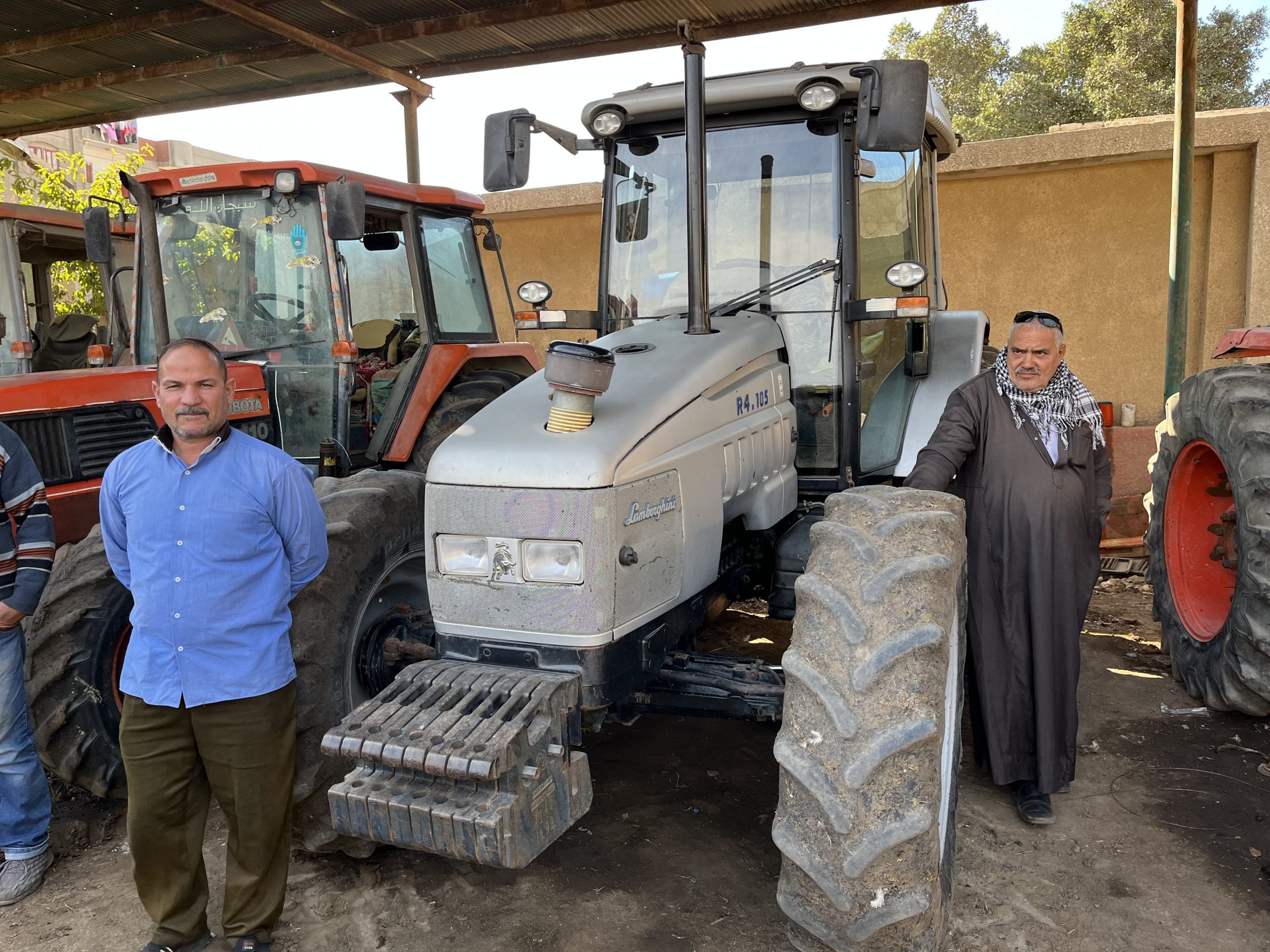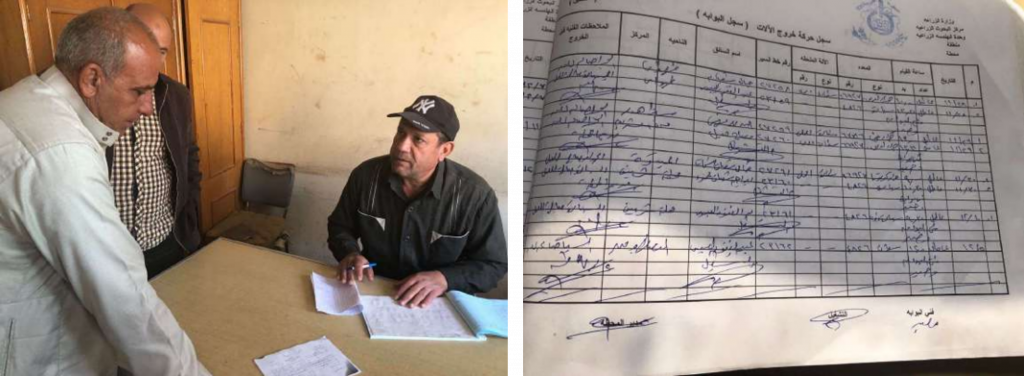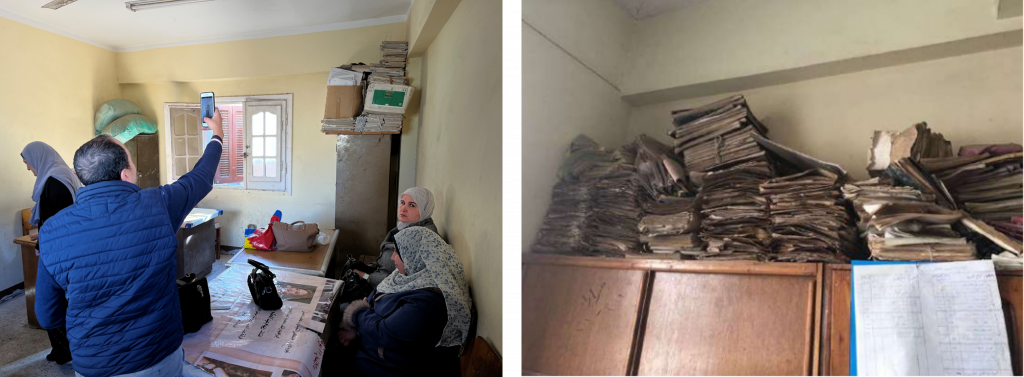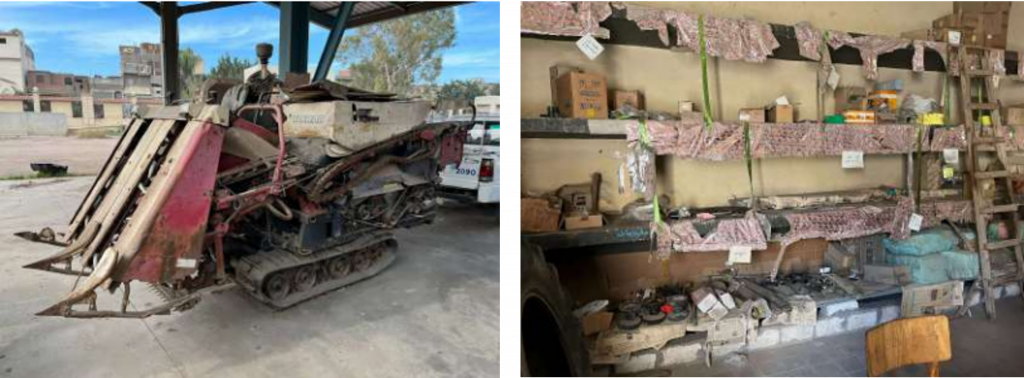2023.2.28

Ukraine crisis makes agricultural development an urgent issue. Behind the booming economy lies a serious delay in digital transformation.
STANDAGE Co., Ltd. (Minato-ku, Tokyo, CEO: Akinori Adachi, hereinafter referred to as Standage), which develops and provides digital trade platforms, was selected by the Ministry of Foreign Affairs as a task force to carry out a "preliminary survey on grant aid," and in January 2011, conducted a survey of the current state of agricultural machinery lending management in Egypt. While Egypt continues to enjoy robust economic growth, it is in urgent need of improving its food self-sufficiency rate due to the Ukraine crisis, so it is extremely important for the country to improve the efficiency of agricultural machinery operation and develop agriculture.
Standage visited 11 of the 134 agricultural machinery lending centers, including those that Japan had previously provided through ODA, to find that there were a number of issues at the centers, including that all lending was managed using paper ledgers, that repairs for broken machinery were complicated and the machines were not being used efficiently, and that the average age of workers was over 40, resulting in a lack of staff who could use computers.
Bread is Egypt's staple food, and although there is a high domestic demand for wheat, domestic production is not enough to meet self-sufficiency, so the country relies on imports from other countries.
Recently, due to the unstable situation in Russia and Ukraine, which were our main import sources, it has become urgent to improve self-sufficiency.
In the 1980s, Japan provided Egypt with agricultural machinery through ODA and established an agricultural machinery lending center. This survey project aims to digitize the agricultural machinery lending system, which is still managed on a paper basis today, thereby increasing the utilization rate of agricultural machinery and contributing to improving the country's self-sufficiency rate for agricultural products, including wheat.
For details,Press release issued in November 2022Please see.
The total cultivated area in Egypt is only 3.88% of the country's land area, but the proportion of cultivated area in the delta region, where Japan has actively provided ODA, is higher than in other regions.
This time, we conducted interviews with the Egyptian Ministry of Agriculture, and visited 11 of the 134 agricultural machinery rental centers in Egypt, mainly in the delta region, where the cultivated land ratio is high. Through the survey, we gained an overall understanding of the operations of the agricultural machinery rental centers currently in operation and conducted our research.
■Current status of agricultural machinery lending management in Egypt
The main challenges identified through the survey are as follows:
1) All lending processes are managed on paper

The entire process of renting agricultural machinery, including requesting service, checking machine inventory, calculating rental fees, creating purchase orders, and making payments, as well as managing schedules and security checks at the rental center, are all done manually and on paper.
Past records are piled up on shelves in the lending center in an unorganized state.

In addition, there is no system for managing which agricultural machinery is currently available for loan, so every time a loan request comes in, the person in charge must be called to confirm, or a person must go and check on the machinery's operating status.
2) The supply flow of spare parts is complicated and inefficient due to the small number of operational agricultural machines.
At the 11 rental centers visited this time, many combine harvesters and tractors were found to be out of operation due to a lack of repair parts.

This is because requesting spare parts and carrying out repairs and maintenance requires the use of paper documents and going through a complex process, which results in inefficient parts supply and in repairs being carried out satisfactorily.
3) The employees are older and there is no one who can operate a PC.
None of the 11 lending centers we visited had PCs or printers, and everything was managed on paper. Although the number of staff employed by the government was ample compared to the amount of work they were doing, most of them were in their 40s or 50s or older, and there were very few staff members at any of the centers who could use a PC, which is thought to be one of the reasons for the delay in digitization and systemization.
■Opinions and thoughts
Through our on-site research, we found that the agricultural machinery rental process is highly analog, and at the same time, the supply flow of parts needed for repair and maintenance of agricultural machinery is analog and inefficient. This is one of the reasons why existing agricultural machinery cannot be used efficiently and prevents the revitalization of agriculture.
In response to the aforementioned issues that have been highlighted, Standage believes that possible solutions could include the introduction of a GPS-based agricultural machinery location tracking system, an online agricultural machinery advance reservation system linked to a fee calculation macro, and an inventory management system for repair and maintenance parts.
However, since the centers do not even have equipment such as PCs or WiFi, and management is done on paper, and not all staff members are able to use PCs, they need to start by developing the infrastructure required for digitalization, and providing training on PCs and management software.
In addition, regarding the number of employees not commensurate with the volume of work, this survey revealed that the number of employees at the Lending Center was significantly increased due to the wishes of the previous administration. Since hasty digitalization could lead to the loss of jobs of employees, it is necessary to proceed while carefully coordinating with the field.
Egypt and other parts of Africa have seen remarkable development in recent years, with optimistic economic news flooding in every day, including population growth, the rise of the wealthy, the cultural penetration of virtual currencies, and accelerating investment.
On the other hand, it is also true that there are still many cases, such as the current case in Egypt, where deep-rooted problems at the national level are impeding business and national development.
Since its founding in 2017, Standage has focused on Africa and has four bases there. In order to continue contributing to the development of Africa, Standage will continue to engage in business while sincerely addressing social issues.
For trade-related inquiries, please contact us here.